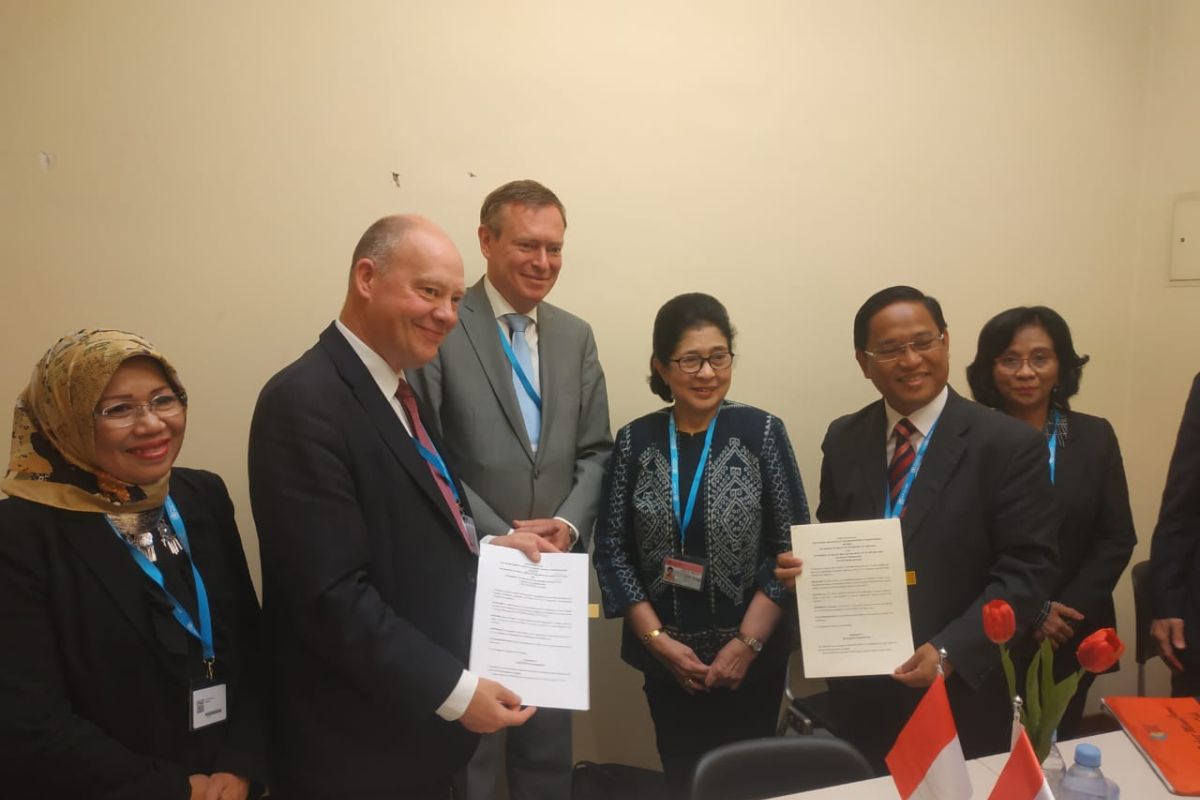Jakarta (ANTARA) - Indonesia and the Netherlands have discussed cooperation in the health sector, particularly in family medicine, antimicrobial resistance and the health of the elderly.
While attending the 72nd World Health Assembly meeting in Geneva on Monday, Indonesian Health Minister Nila Moeloek met with Dutch Minister of Health Services Bruno Johannes Bruins to discuss national health programs.
In her statement, Tuesday, Moeloek said the Netherlands was well known for delivering superior care to its citizens through its family doctor programs.
"We see primary health care as a gatekeeper. An example is in cervical cancer screening, which can be performed at community health centers or 'puskesmas'. Thus, people do not have to travel to distant health facilities, they can just go to 'puskesmas' or independent clinics," she said.
Also, the two ministers discussed an upcoming meeting on antimicrobial resistance, to be held in the Netherlands in June.
Minister Moeloek noted that she was grateful for the Netherlands hosting the event and naming Indonesia as co-chair of this meeting.
"We hope that this conference will generate ideas and recommendations, as well as methods to control antimicrobial resistance at the global level," she added.
The meeting of the two ministers concluded with an agreement to promote the development of three areas of cooperation, including strengthening the health system with a focus on medical care for the elderly; control of infectious diseases, including antimicrobial resistance; and global health security.
Such an agreement would be followed by an MoU, in a bid to carry out actions proposed at the meeting.
"Not only what is being discussed, but more important is how to implement those programs in Indonesia. So it is not just us discussing theories, but instead taking action," Moeloek noted.
Reporter: Aditya Ramadhan, Yashinta Difa
Editor: Suharto
Indonesia, Netherlands discuss cooperation in health sector
Rabu, 22 Mei 2019 5:49 WIB

Indonesian Health Minister Nila Moeloek met with Dutch Minister of Health Services Bruno Johannes Bruins to discuss national health programs when they attending the 72nd World Health Assembly meeting in Geneva on Monday.(doc. Ministry of Health)
We see primary health care as a gatekeeper. An example is in cervical cancer screening, which can be performed at community health centers or 'puskesmas'. Thus, people do not have to travel to distant health facilities, they can just go to 'puskesmas









